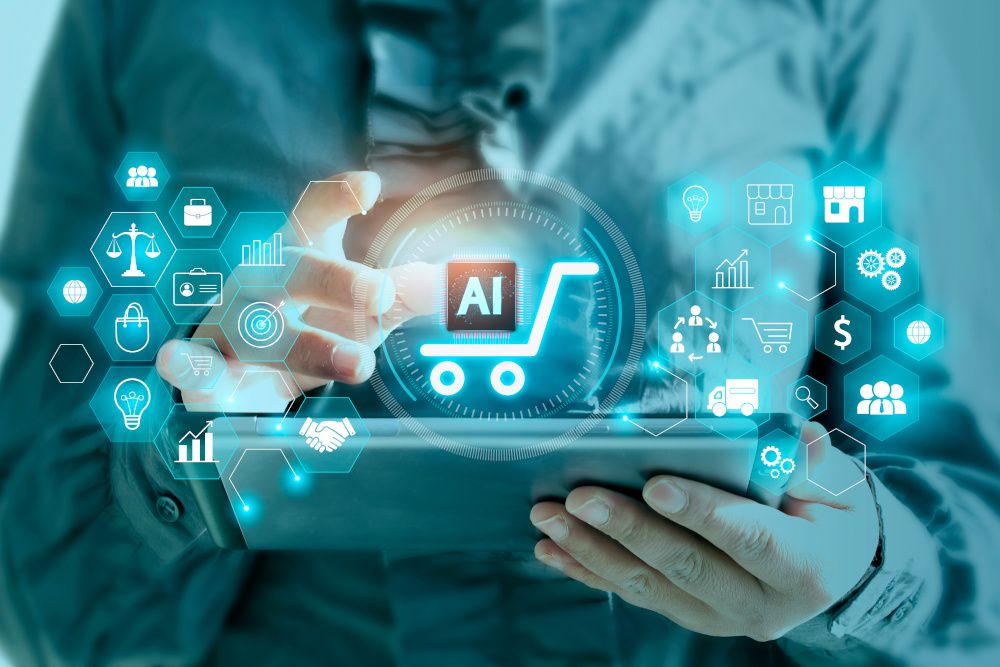Artificial intelligence is revolutionizing ingredient discovery
Here’s how companies are leveraging the power of AI in nutraceuticals.
2023 is the year of AI. Artificial intelligence tools proliferated this year with surprising speed and diversity. The launch of ChatGPT in November 2022 spurred an AI arms race with companies across all industries finding new and innovative ways to use artificial intelligence to perform unique tasks.
The nutraceutical industry is just the latest sector to be disrupted by AI. Emerging technologies are redefining what’s possible in nutraceutical development. Here are some of the ways nutraceutical companies are leveraging AI—so far.
AI Can Isolate Bioactives in Record Time
Artificial intelligence has predictive properties that outweigh any sort of human ability to hypothesize. Sofia Elizondo, cofounder and chief operating officer of Brightseed (San Francisco, CA), says that artificial intelligence is the nutraceutical industry’s most powerful tool for finding better health solutions faster.
“Brightseed uses AI to find bioactives in nature and commercialize them as nutritional ingredients for gut health,” Elizondo explains. “We have a deep pipeline of bioactives addressing related health areas. Our proprietary AI, Forager, profiles and annotates compounds that undergo deep analysis.”
Forager can predict which compounds are potentially bioactive and then link those high-value compounds to their biological mechanisms of action at a depth, rate, and speed that was previously impossible, Elizondo says. Forager’s AI models are trained with highly curated biomedical insight, enabling the industry to de-risk clinical validation, she adds.
Forager works in three ways: First, it predicts which compounds will be found in certain plants, fungi, and bacterial sources. Second, it predicts those compounds’ activity in the body. And third, it predicts which bioactive compounds will impact which biological pathways. Once Forager has completed its analysis, Brightseed’s team runs further analyses to predict the compound’s potency, using biological assays to validate predictions in vitro.
Artificial Intelligence Supercharges Ingredient Discovery
Traditional methods of ingredient discovery are slow and cumbersome and typically involve making small iterations of existing ingredients. Andrew Franklyn-Miller, PhD, chief medical and innovation officer at Nuritas (Dublin, Ireland), says that artificial intelligence enables nutrition industry experts to work faster when discovering new ingredients. A typical new ingredient can take 20 or more years to come to market, he says, and the industry isn’t set up to risk high research and development costs. With artificial intelligence, however, it’s possible to accelerate research and de-risk the development process.
“Our platform has shown 69% success at discovery phase and over 80% success at clinical trial, with over 60 patents and 13 publications,” Franklyn-Miller says. “Our typical time to market is 24 months."
Nuritas uses a combination of deep learning, generative modeling, knowledge graphs, data-scraping techniques, and GPT-like modeling to predict plant-sourced peptides. The company leverages this technology in conjunction with its proprietary Peptide Vault, using biological assays to confirm predictions. Nuritas’s AI discovery platform, Magnifier, uses the world’s largest library of plant-sourced peptides to discover new ingredients, the firm says.
Taking Personalized Nutrition One Step Farther
Artificial intelligence is highly useful for bioactive isolation and ingredient discovery, but experts say that’s just the beginning. AI is the next step in the evolution of personalized nutrition, with experts saying it will pave the way to a new generation of nutraceuticals with targeted benefits.
“We see a future where AI can analyze personal data—genetic information, personal health data, and lifestyle information—to connect consumers with tailored solutions to fit their needs,” Elizondo says. “In the near term, we’re predicting that bioactives is something that will start appearing more and more on product labels.”
As AI enters the personalized nutrition realm, other technological advances will enable it to go even further. Franklyn-Miller says data from wearable technologies will enable additional advances in artificial intelligence that will permit companies to see the direct benefits of their ingredients.
“We’re using continuous blood-glucose monitors, Oura Rings, and EEGs to monitor the effectiveness of clinical trials now,” he says. “I see us getting more involved in genetics in the future. As the platform learns, AI will only get better at early identification [of bioactives].”
Artificial Intelligence Is the Future of Nutraceuticals
The nutraceutical industry has only scratched the surface of what’s possible with artificial intelligence. With new AI tools enabling faster and more successful ingredient discovery, the industry will see reduced risk in bringing new products to market. This, though, is only the beginning. The floodgates of innovation are opening, and artificial intelligence is set to redefine the entire industry in unpredictable ways.
Kaneka Nutrients to unveil new consumer research on menopausal women at Vitafoods Europe 2024
April 26th 2024The company will reveal the results of the research that is based on live feedback from 200 menopausal women who took 200 mg per day of Kaneka Ubiquinol over two-months, monitored the effects, and recorded their observations.
Rousselot to showcase new collagen peptide research and targeted solutions at Vitafoods Europe 2024
April 25th 2024The company will be highlighting new research that demonstrates the ability of its Peptan collagen peptide brand to support sleep quality, reduce gastrointestinal discomfort, and enhance skin health, including density, hydration, and elasticity.
